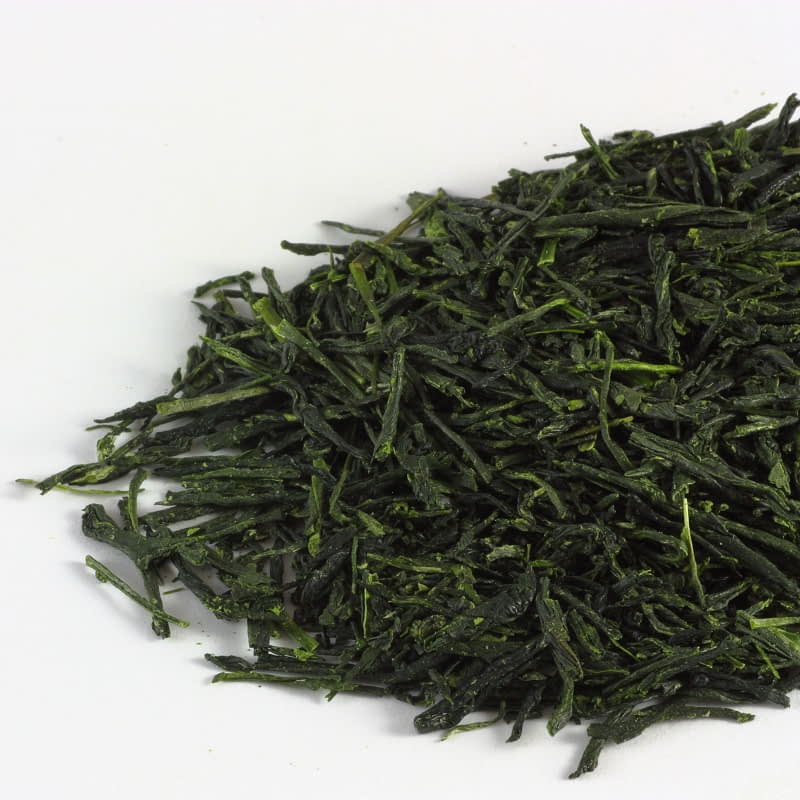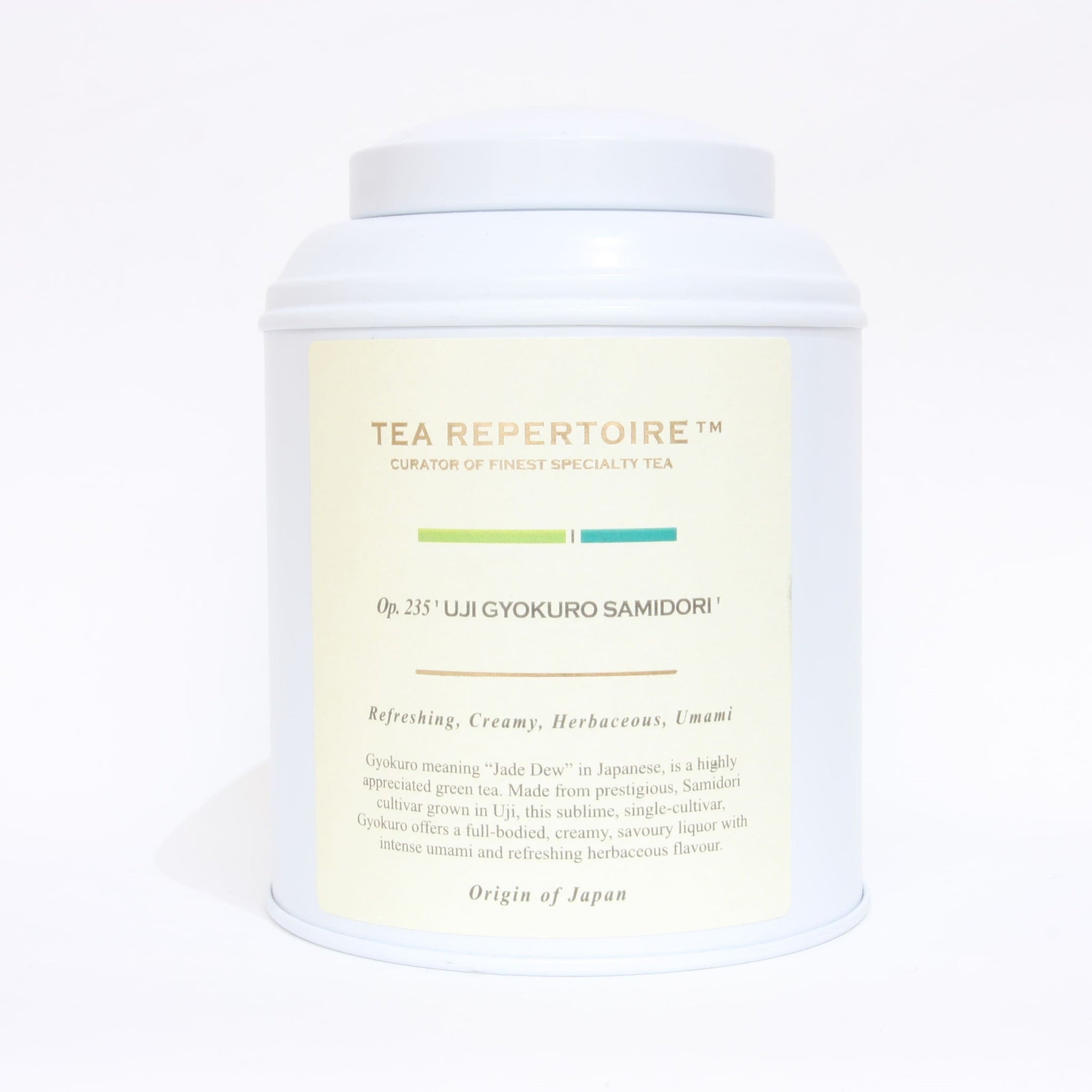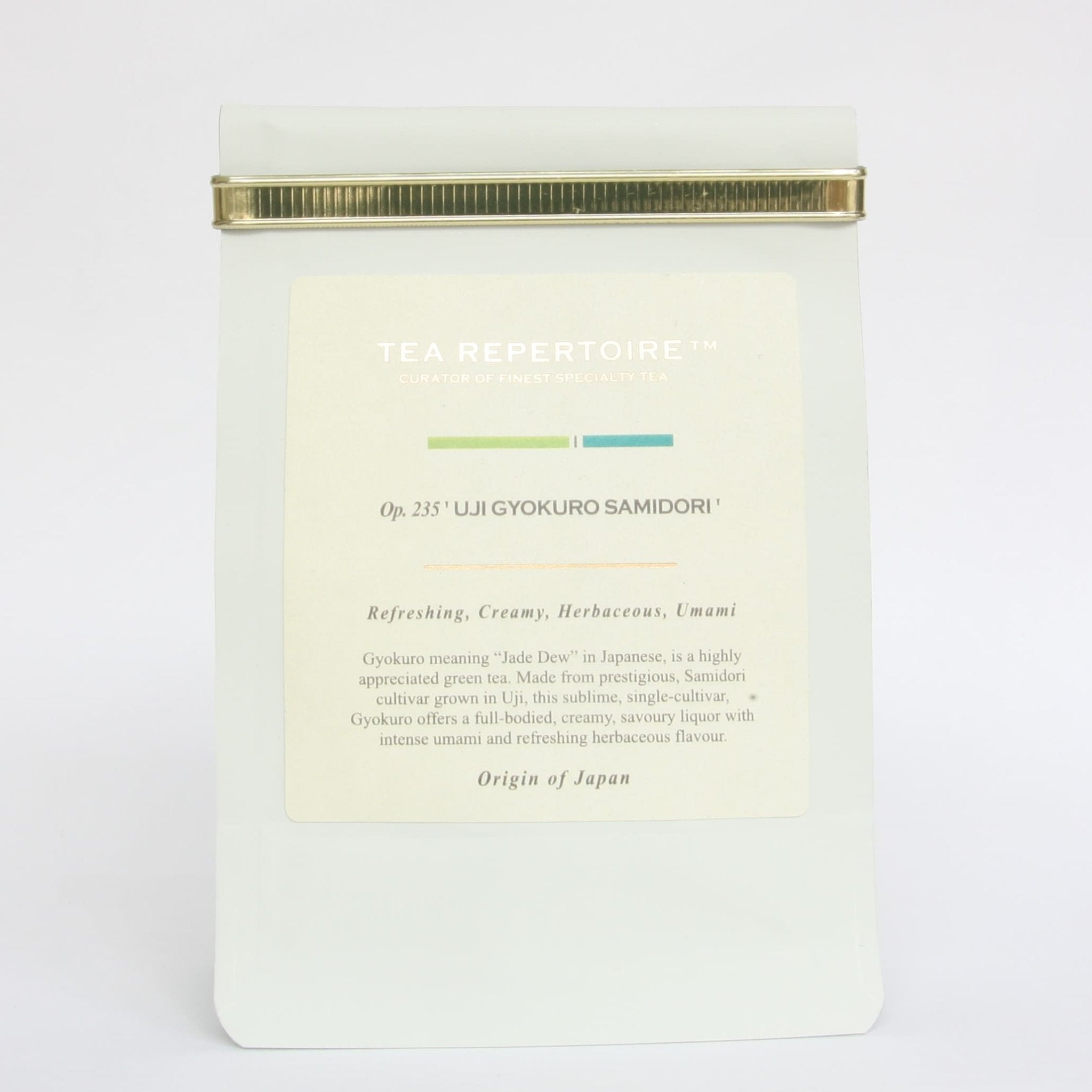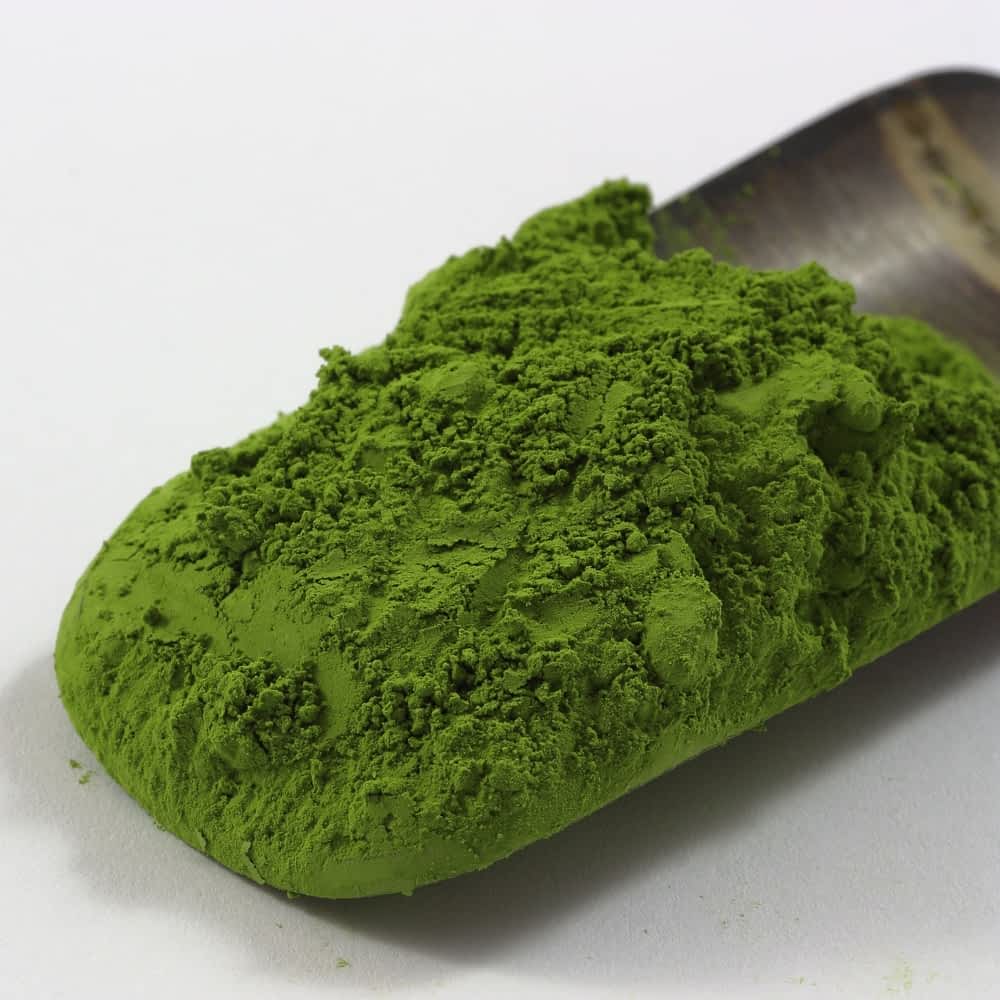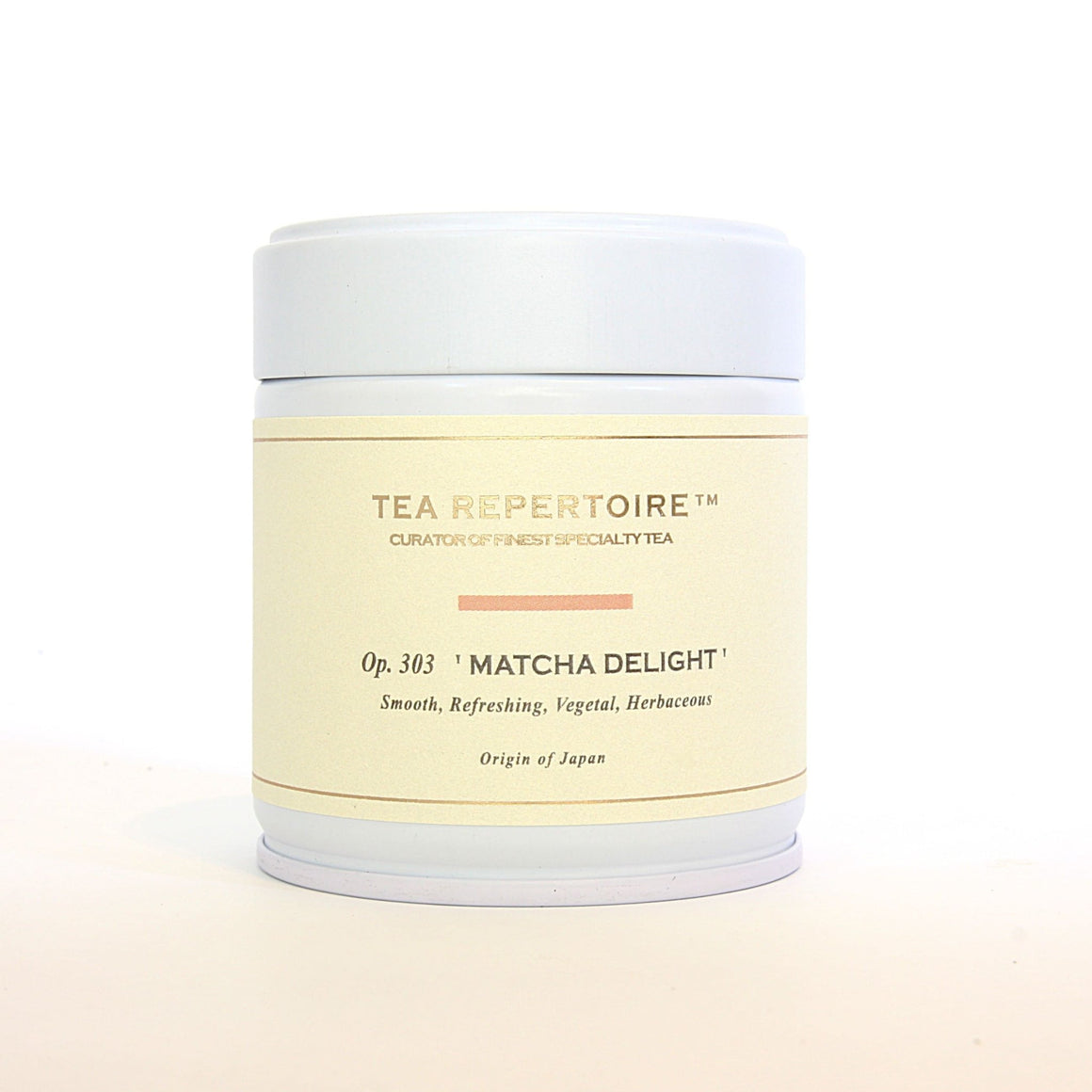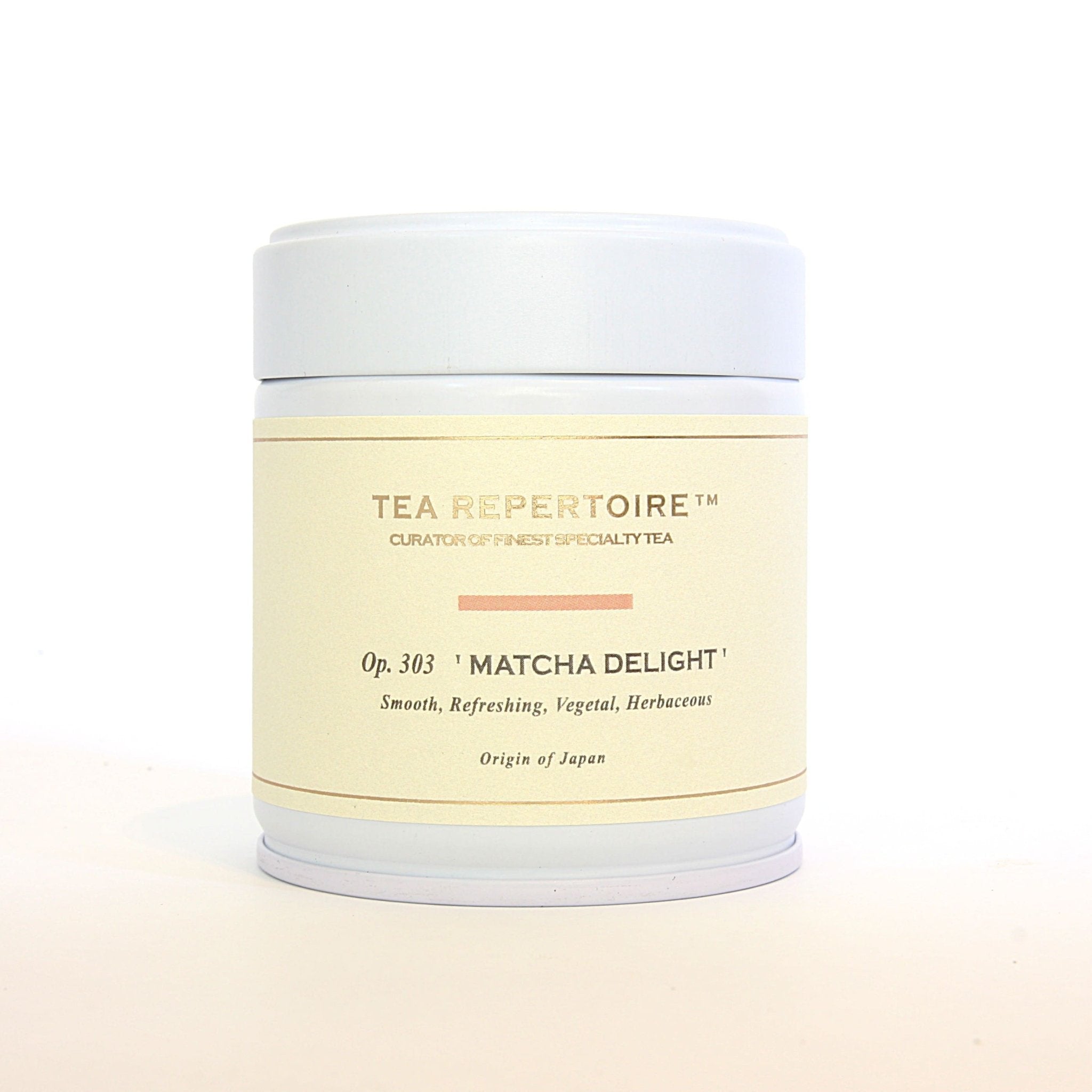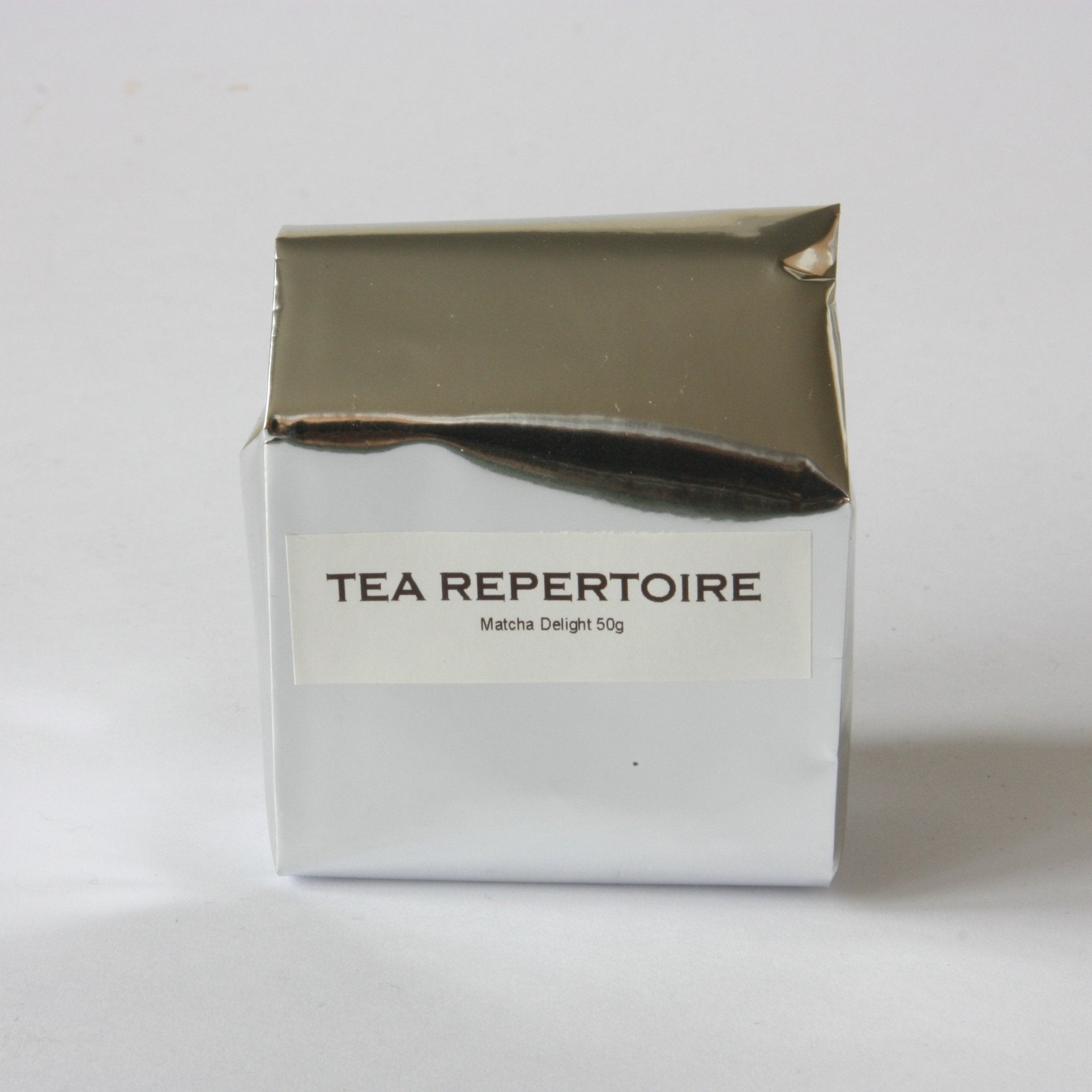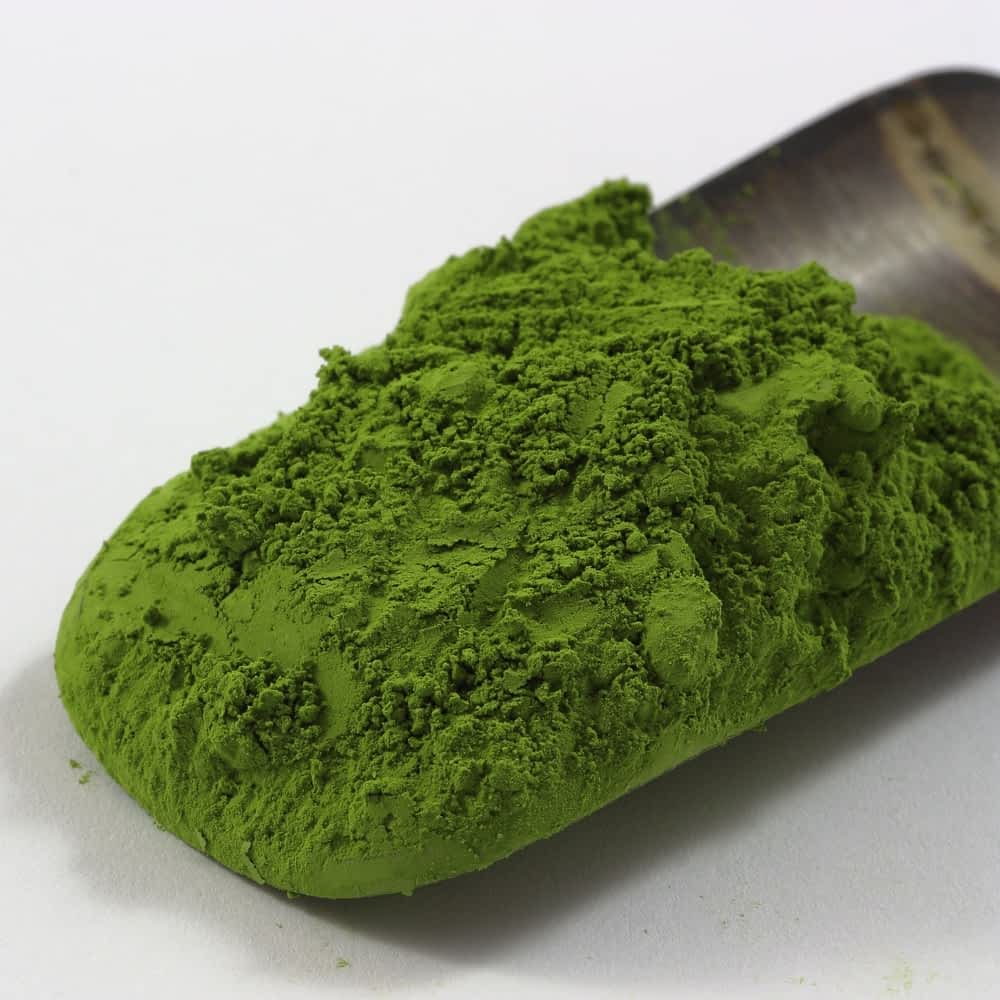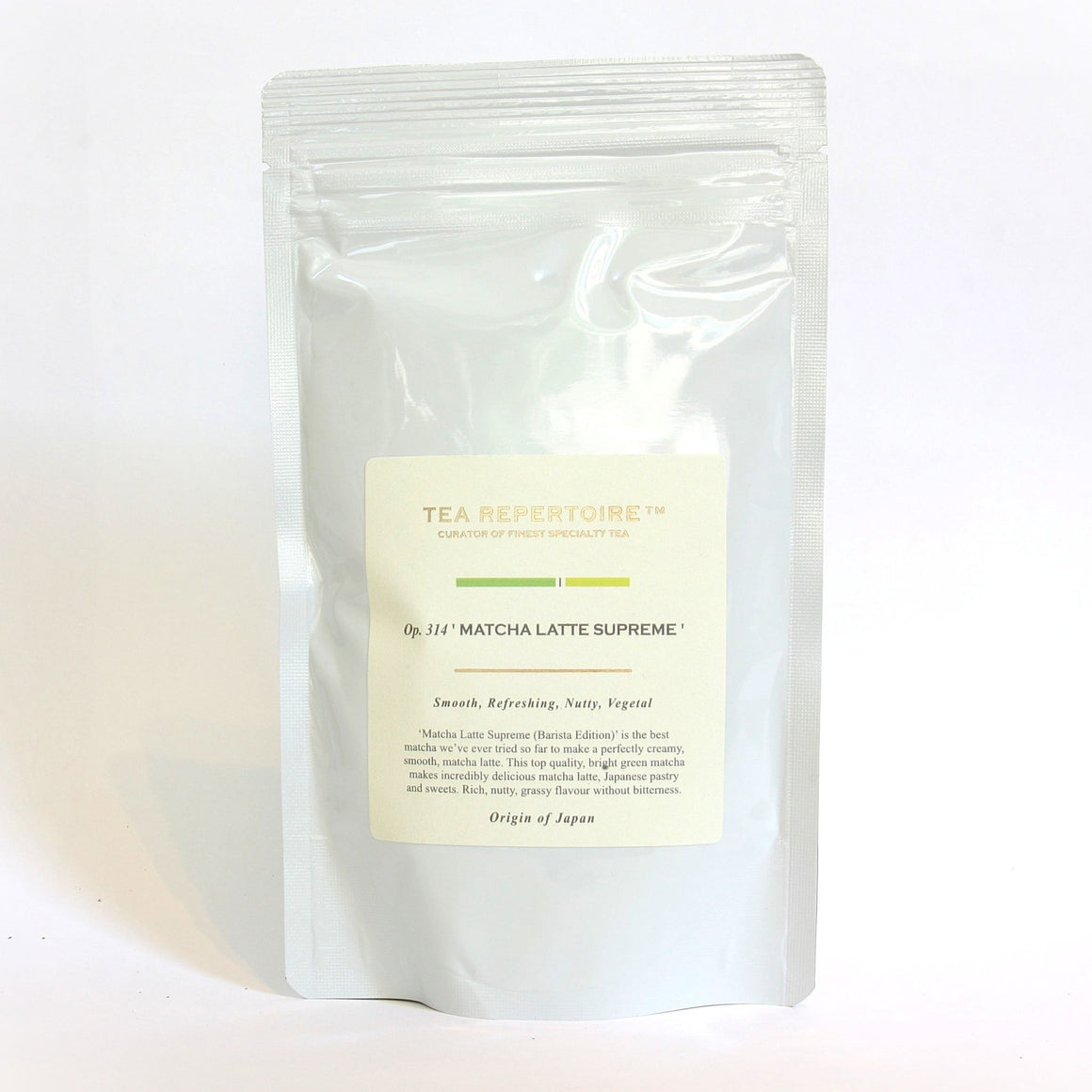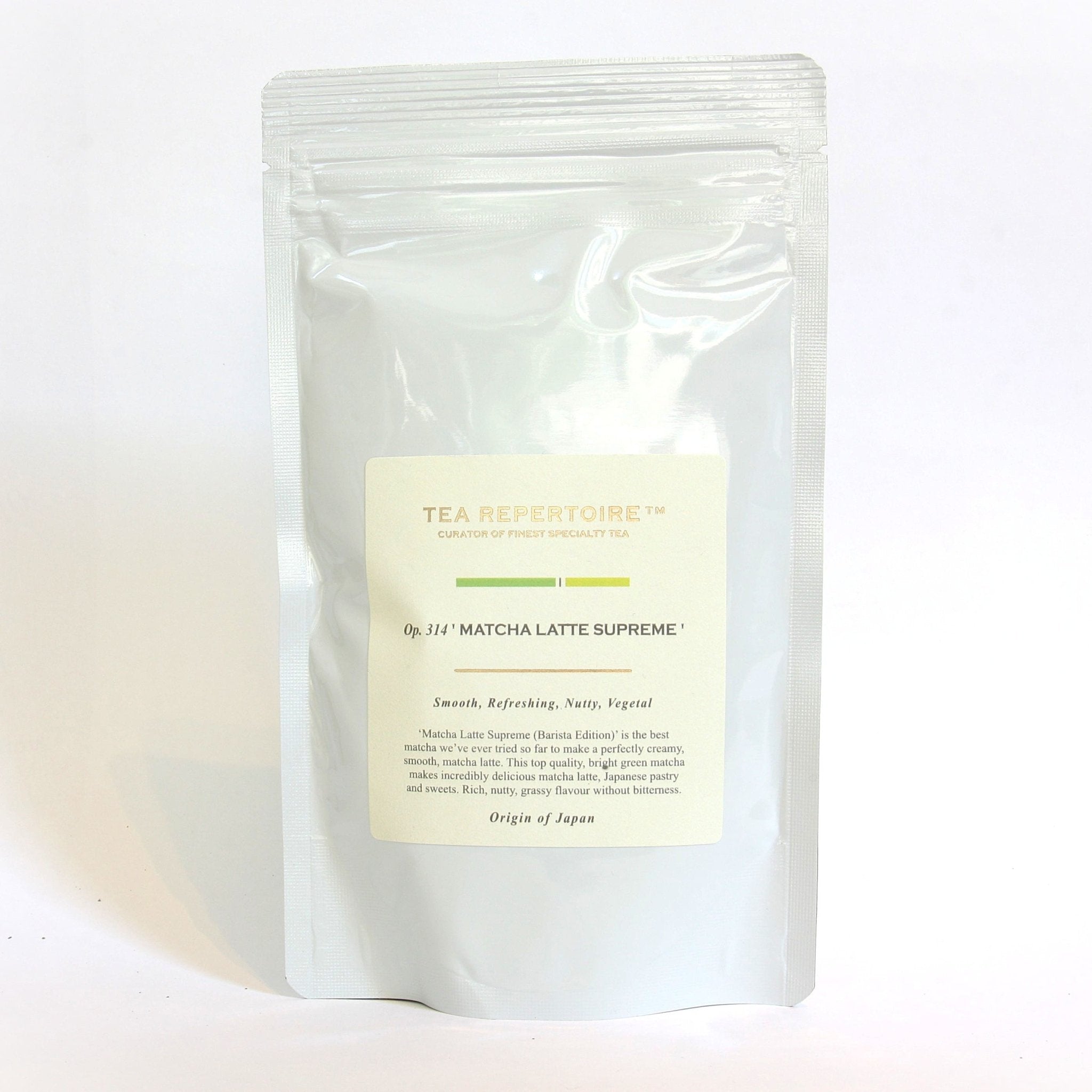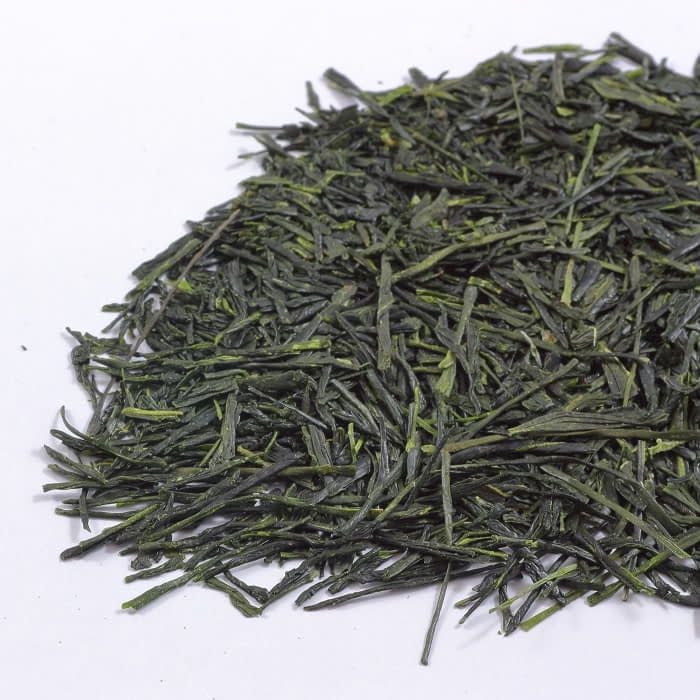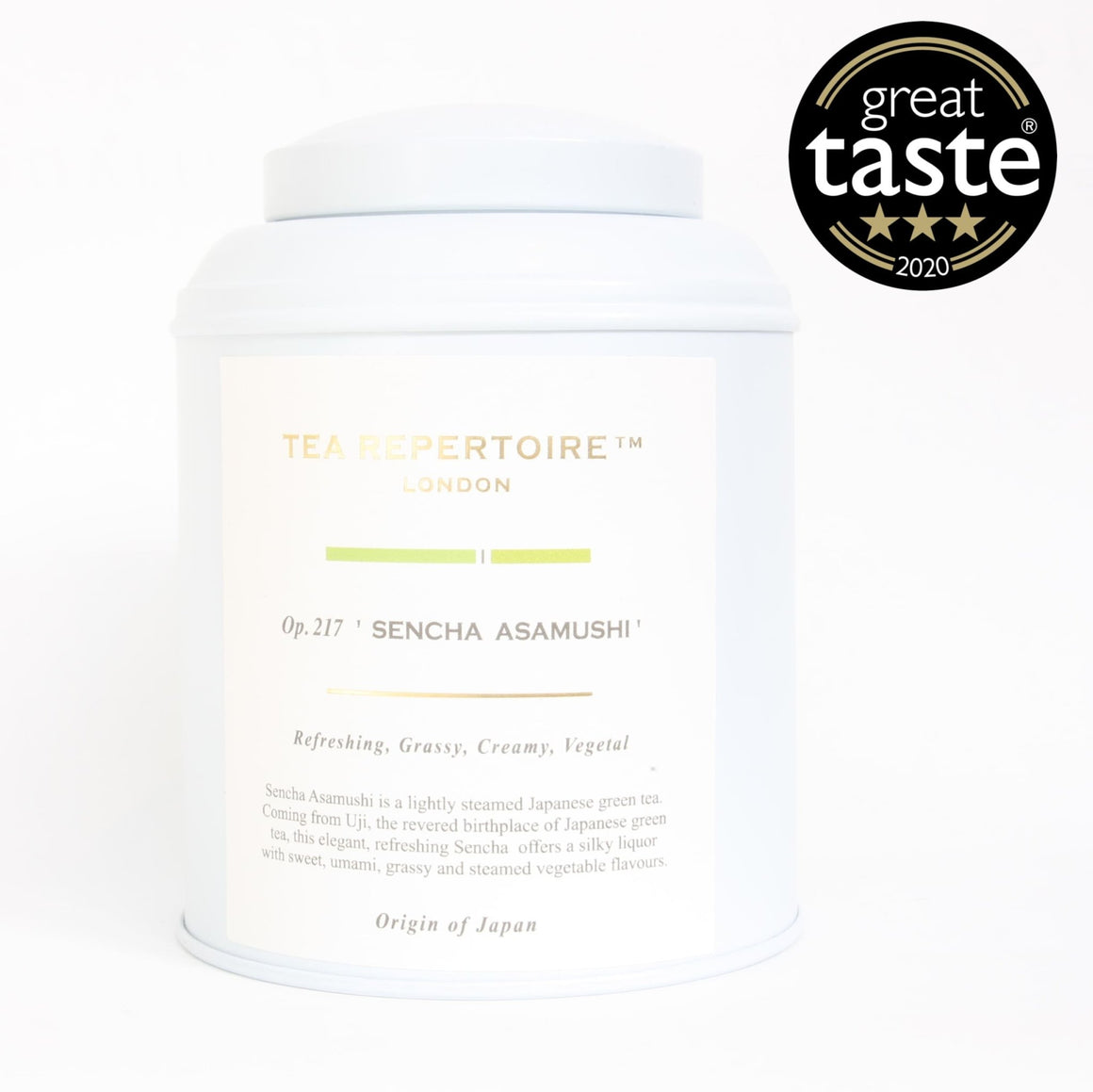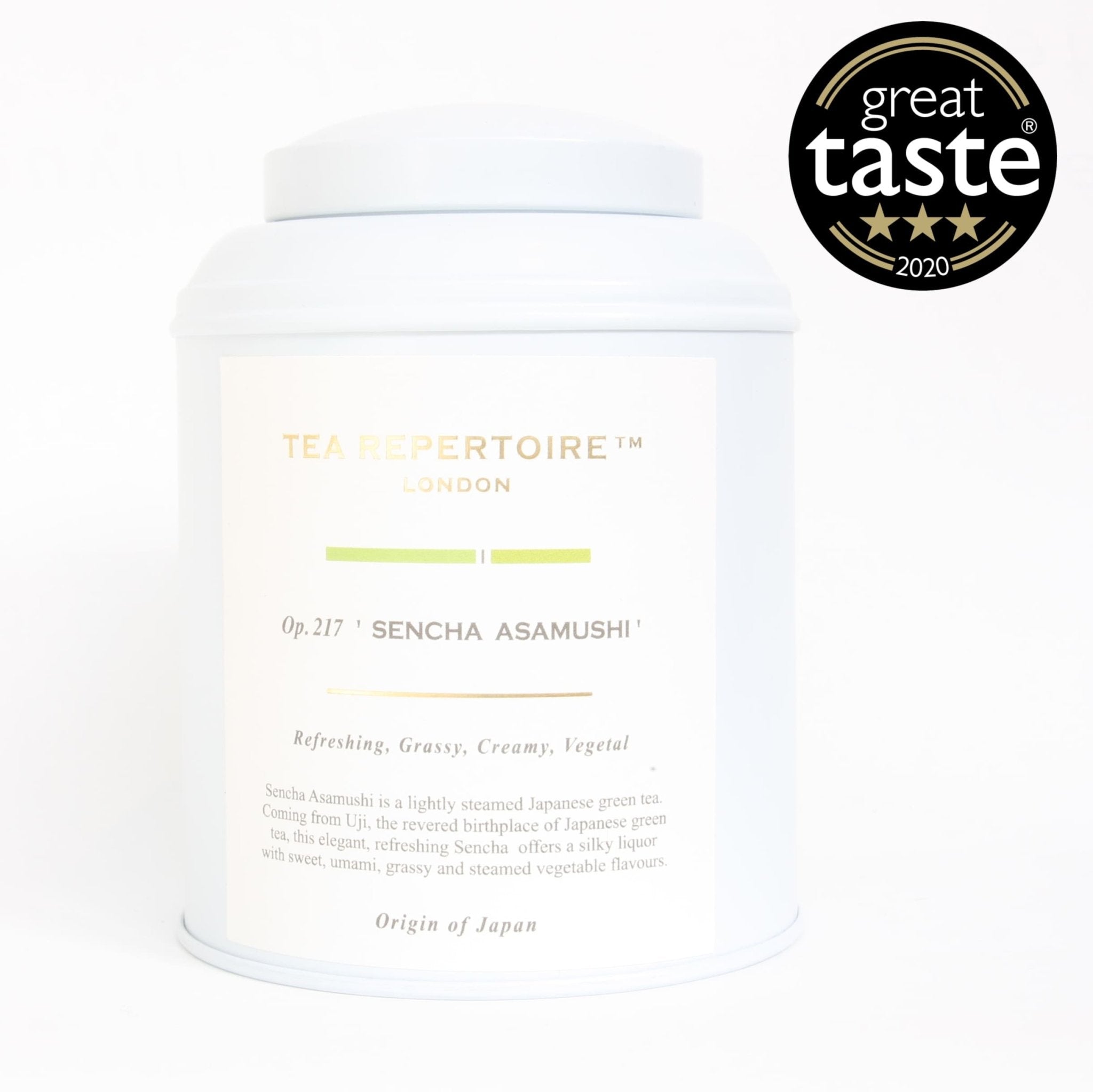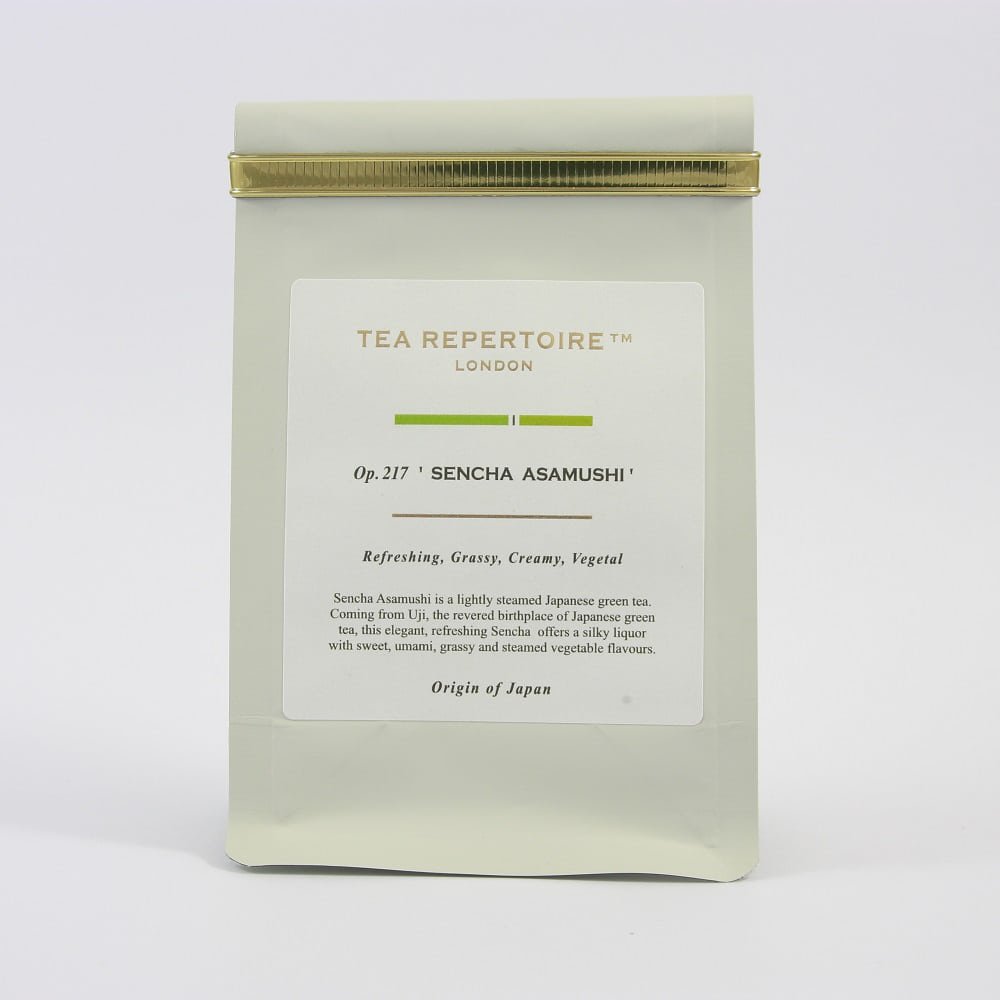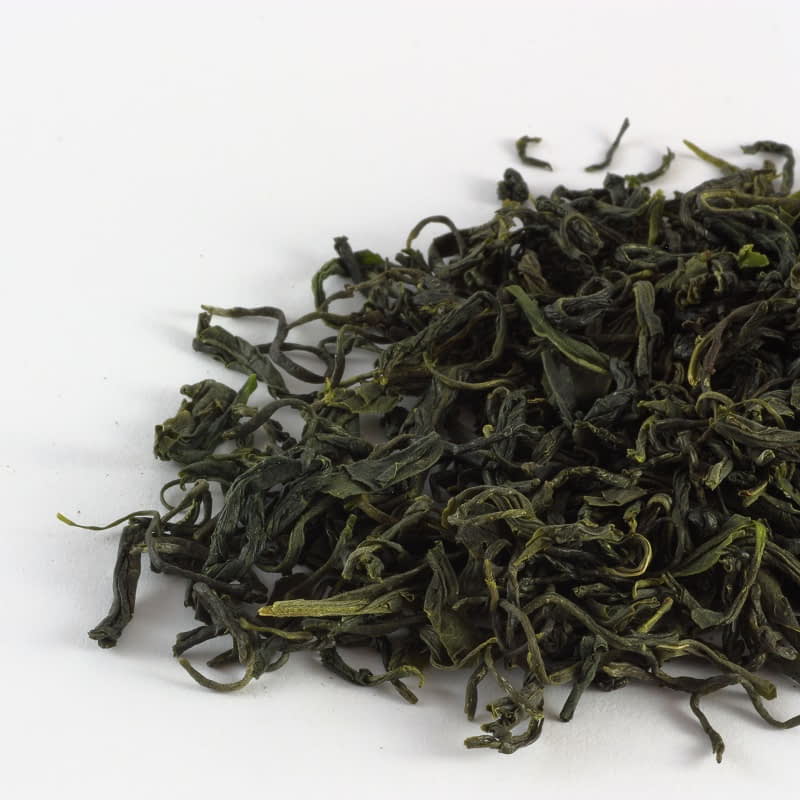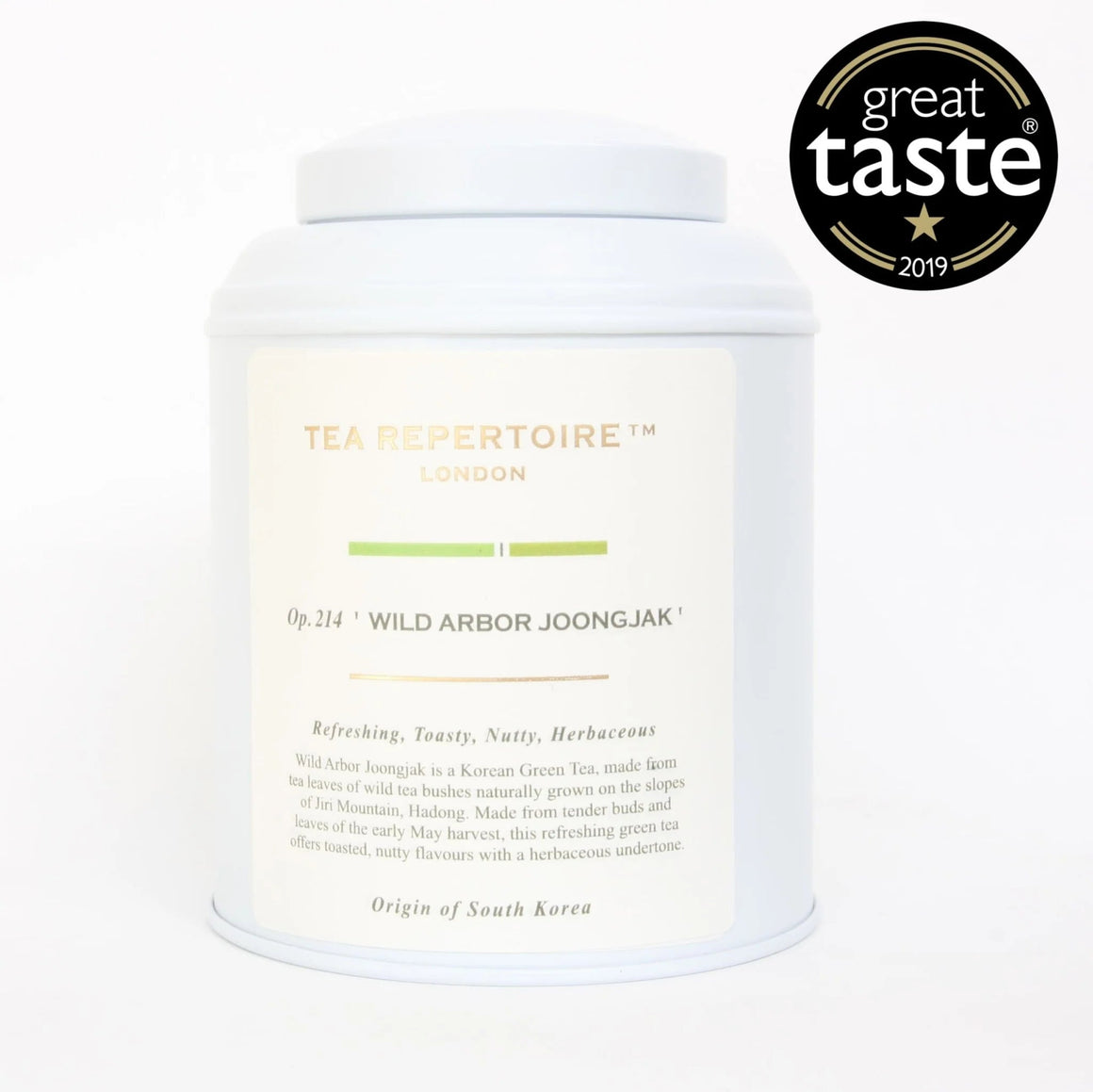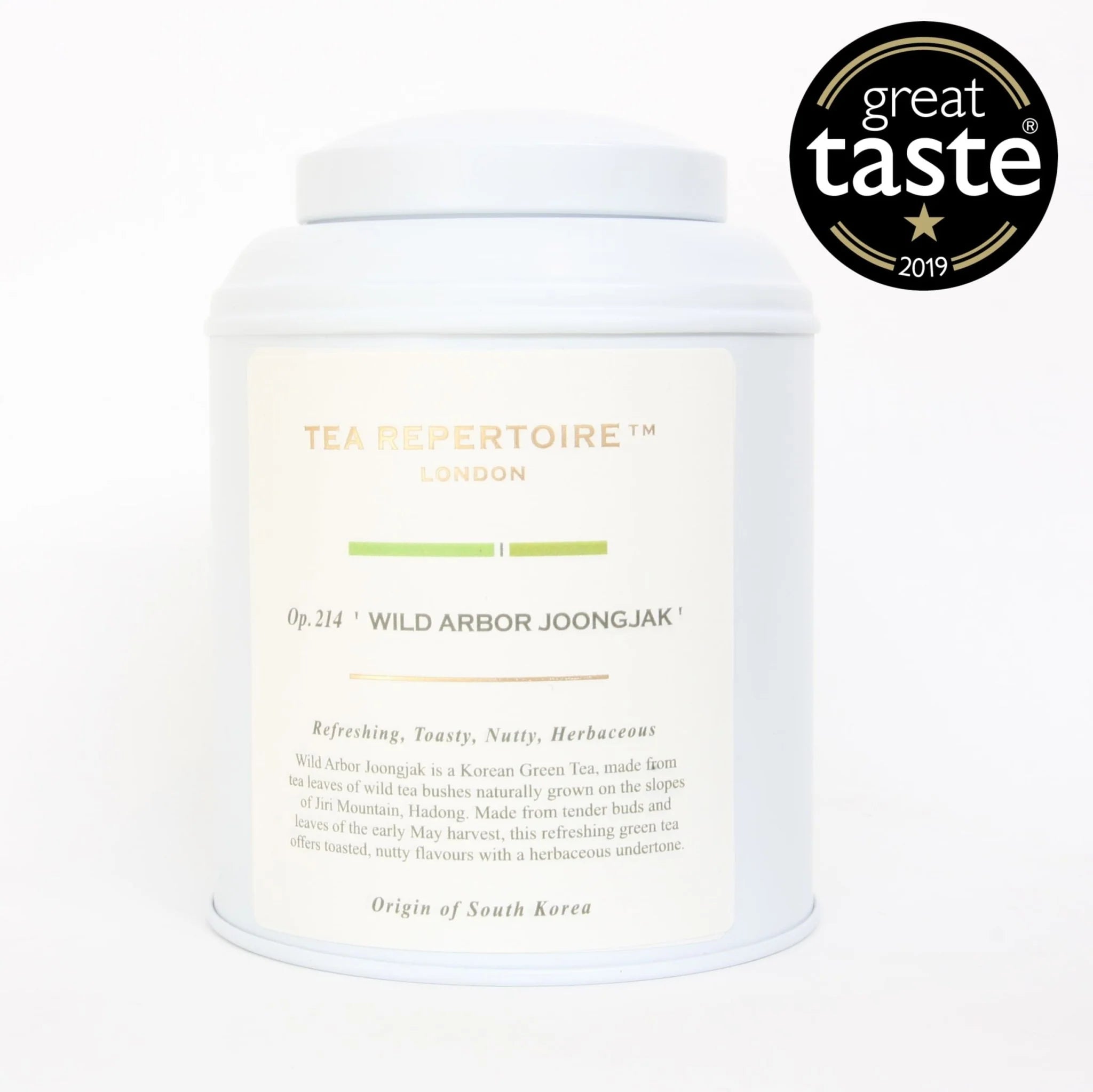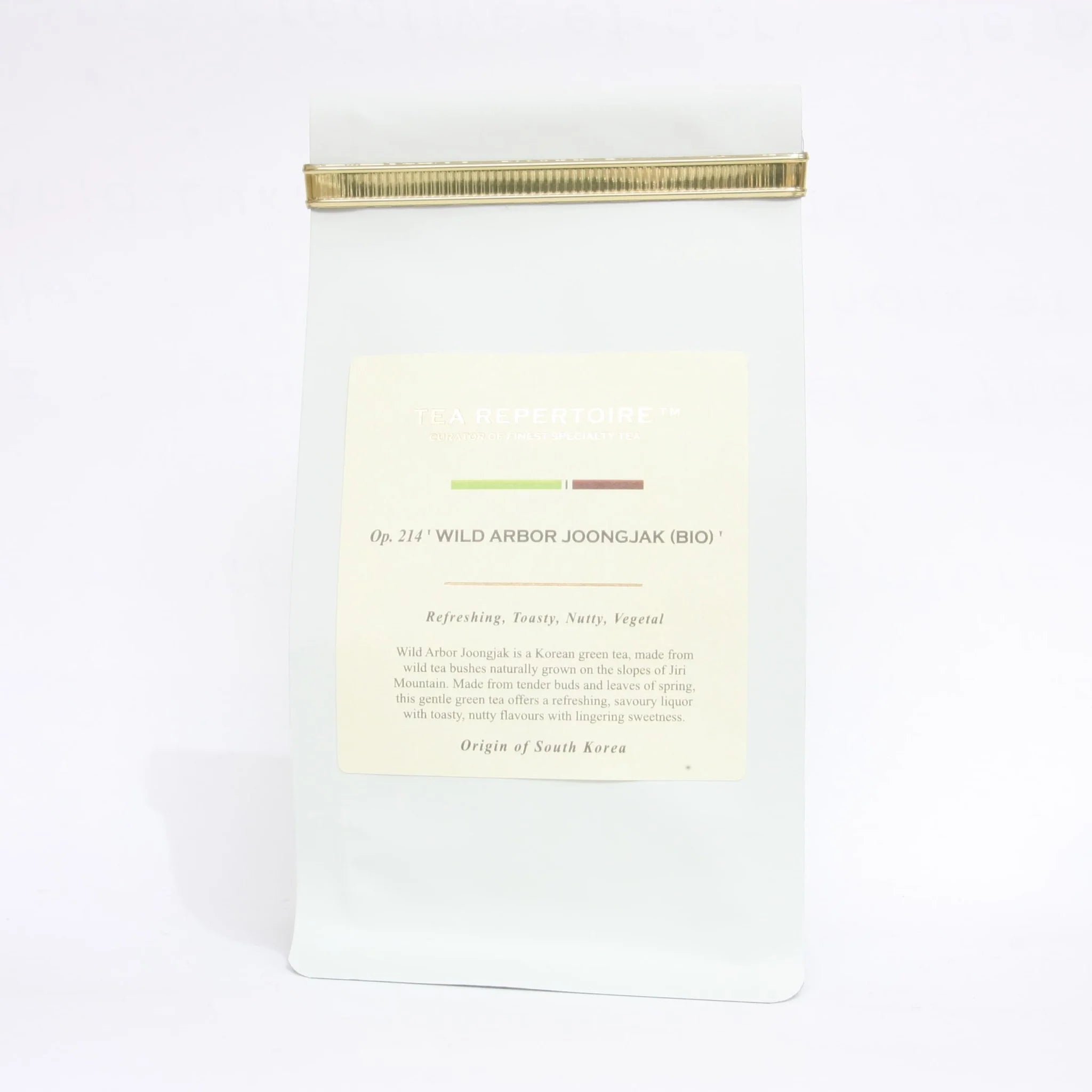Tea Type: Green Tea
Tea Cultivar: Samidori
Tea Region: Uji, Kyoto, Japan
Tasting Notes
- Appearance: Slightly cloudy, pale emerald green coloured infusion.
- Aroma: Creamy, milky, cooked vegetal notes accompanied with gentle grassy notes.
- Flavour: Rich, umami, buttered steamed greens (spinach, zucchini) and sweet, creamy, milky notes are accompanied by refreshing mint and thyme finish.
- Supple, full-bodied liquor. Creamy and unctuous mouthfeel and well-sustained, refreshing minty finish that leads to cooling and soothing sensation on the palate. Absence of bitterness and astringency.
Brewing Guidance
- Measure 3g of tea per 150ml water. Boil water to 60℃. Steep for 2 minutes.
Reference: Op.204 UJI SAMIDORI
All You Need to Know about Gyokuro Uji Samidori
Made from carefully hand-picked tea leaves grown on the picturesque hills of Uji, which then have been masterfully crafted into a beautiful, dark green needle shape by the 16th generation tea master, our Gyokuro Uji Samidori offers a delicious, sweet and silky infusion with gentle milky and cooked vegetable notes.
In comparison to our other single cultivar Gyokuro - Gyokuro Yabukita and Gyokuro Goko (they also make a delicious, full-bodied, silky, creamy infusion with rich sweet, umami flavour), Gyokuro Uji Samidori offers a slightly lighter body and less unctuous mouthfeel but it comes with a distinctively, refreshing strawberry and mint finish which adds more complexity to its dominant creamy, milky flavour.
If you really love the oily creamy texture and appreciate the sweet, milky, vegetal flavour of Gyokuro, you'd be more than happy and satisfied with our Gyokuro Yabukita and Gyokuro Goko. If you appreciate more delicate, refreshing Gyokuro with a bit more flavour complexity, you will be impressed with our unique Gyokuro Samidori and Gyokuro Uji Hikari. The minty finish is more present in Gyokuro Uji Hikari than in Gyokuro Uji Samidori.
A supreme example of masterfully crafted Gyokuro that is a must try for any tea connoisseurs and Japanese tea lovers.
Tips for Tea Connoisseurs
Gyokuro, which translates into "Jade Dew" in Japanese, is a highly appreciated, much sought-after green tea by Japanese green tea connoisseurs for its elegant and refreshing aromas and flavours. Originating from an award-winning, family-run tea garden in Uji, which has been established during the Tensho era, this gracious Gyokuro made from the prestigious, elite Samidori cultivar has captivated our palate in all respects with its distinctively rich, creamy, umami flavour and delicate sweetness.
To make Gyokuro Uji Samidori, Samidori tea plants have been shaded 30 days in advance before harvest to achieve its iconic mellow sweetness. Due to its limited exposure to the sunshine, tea plants undergo a chain of physiological changes in order to survive, which, in turn, results in the changes of the chemical composition of the tea leaves. As this shading method imposes a heavy burden on the tea plants, tea leaves for Gyokuro green tea are harvested only once a year, in contrast to tea leaves for Sencha green tea which are harvested 4 times a year. Produced this way, Gyokuro green tea is extremely rich in L-theanine, the essential amino acid in developing Gyokuro green tea's desired flavour profile - mellow, sweet, rich, umami flavours.
Please ensure to use low water temperature (60℃) for no longer than 2 minutes to appreciate its iconic, deep, umami flavour. Infusion at any higher temperature will result in bitterness in the liquor, which will cover up the distinctively elegant and mellow character.
As with all green tea, Gyokuro is rich in antioxidants and known for its potential health benefits such as promoting heart health, cancer prevention, boosting the immune system and lowering down blood pressure.
If you like this product you may also like Gyokuro Kukicha, Matcha Eroica, Sencha Asamushi and Wild Arbor Joongjak.

